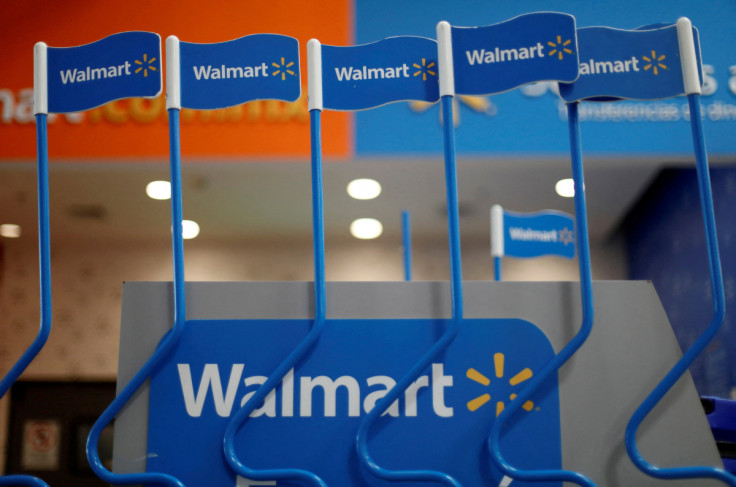How Walmart Wins In The 'Trading Down' Retailing, Beating Target, And Costco
Walmart is the big winner of a "trading down" retail market beating Target and Costco.
In the fourth quarter of 2022, Walmart's U.S comparable sales grew 8% compared to 6.7% for Costco and 0.7% for Target.
Economists and marketers use the term "Trading down" to describe a shift in consumer spending from discretionary to essential goods to cope with Inflation, which has been squeezing family budgets.
Trading down benefits retailers geared more towards things that consumers must buy, like food, and less on discretionary items like clothing.
Close to 60 percent of Walmart's sales are in food, so it benefits from this trend.
"Food is important to other retailers like Target and Costco, but they are comparatively more reliant on non-food categories than Walmart," Guru Hariharan, CEO of CommerceIQ, a billion-dollar E-commerce company, told International Business Times. "Target also looks to be turning a corner but faces additional challenges as it is more reliant on general merchandise categories and discretionary shopping trips altogether."
Walmart's lead over Costco and Target in the new retailing landscape is further confirmed by data from Gravy Analytics, which revealed that as of January 2023, foot traffic to U.S. Target stores only increased at an annual rate of1.6%, compared to a 22.2% rise in Walmart, 20.1% of Costco, 19.5% Sam's Club over the same period.
"According to foot traffic data, Target is facing challenges in sustaining or growing its foot traffic compared to its competitors, and one of the reasons could be the value consumers are getting for their money," said Gravy's CMO, Jolene Wiggins. "As Inflation and economic uncertainty continue to impact many Americans, shoppers are likely to prioritize retailers that offer better value, such as Walmart, Costco, and Sam's Club, where they can stretch their dollars further."
Target's challenges extend to e-Commerce, where the one-stop shop retailer needs to catch up to its competitors. For instance, Target's digital sales declined by 3.6% in the fourth quarter, while Walmart's surged by 17%.
Rick Watson founded RMW Commerce Consulting and attributed it to Target's lack of marketplace and ads.
"Target's lack of ads progress is notable, with 'Other' revenue going up only 9.8% on the year," he told IBT. "Compared to Walmart's 41% the U.S Connect and Amazon's 23% year-over-year growth on much higher bases."
Moreover, Watson believes Target's Marketplace is missing in action.
"It's hard to make a material difference in a scaled retailer with a curated marketplace strategy. At Target's size, it needs to go big or go home. While a few merchants have enjoyed outsized success on Target, as a whole, the initiative has been underwhelming."
Meanwhile, Inflation and trading down have changed the game even for wealthier Americans, who have turned to everyday discounters, the shopping destination even for wealthy Americans.
"Walmart is the clear winner benefitting from wealthier shoppers "trading down" this is occurring in both brick & mortar and e-commerce," continued Hariharan. "Costco benefits from low prices per unit, but higher shelf prices and membership fees might hurt traffic frequency as shoppers look to budget and cut out discretionary purchases."
Walmart is the clear winner on Wall Street, too. Over the last six months, the giant retailer's shares have gained 5.85%, compared to a 0.67% gain in Target's shares and an 8.48% decline in Costco's shares.
Still, Hariharan sees the shift away from durable goods with more significant margins toward food items with smaller margins squeezing profits across the retailing industry.
"Walmart has even mentioned boosting sales in general merchandise is a priority for them since they want to shore up profit," he explained. "Walmart, Amazon, and Target see this trend continuing into next year, potentially hurting profits and reducing their guidance."
And the situation could become worse if the economy weakens over that period and consumers begin to cut down spending even on essential items.
"A big component in all of these retailers is the forecast for the year ahead, hurt by low-profit expectations and uncertainty that consumer spending, even on essentials, will remain strong," Hariharan concluded.
Disclosure: The author owns shares of Costco

© Copyright IBTimes 2024. All rights reserved.












